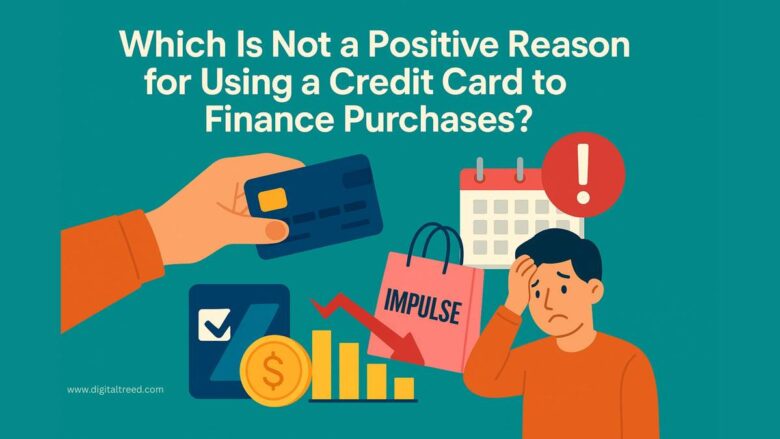Credit cards can be great tools when used responsibly. They offer convenience, protection, and even rewards. But let’s be real—just because you can swipe your card doesn’t mean you should. Some reasons for financing purchases with a credit card aren’t just bad—they can actually cause serious financial headaches down the road. Let’s walk through the biggest traps people fall into when using credit cards for the wrong reasons.
Spending Money You Don’t Actually Have
Probably the number one mistake with credit cards is using them to spend money you don’t currently have. It’s easy to tell yourself you’ll figure it out later, but without a solid repayment plan, it’s a fast track to long-term debt.
When you carry a balance instead of paying it off in full every month, the interest piles up—quickly. According to the Federal Reserve, the average credit card interest rate in the U.S. was over 20% in 2024. That means if you’re rolling over even a few hundred dollars month-to-month, you’re handing your hard-earned cash straight to the bank.
I’ve seen friends fall into this trap, thinking it’s “no big deal” for just one or two months. But the reality is, those months can turn into years of minimum payments that barely touch the principal balance.
Bottom line: Using a credit card to live beyond your means is not financial freedom—it’s borrowing from your future paycheck at a ridiculously high cost.
Making Impulse Purchases
Credit cards make it dangerously easy to buy things in the heat of the moment. A new pair of shoes here, a gadget you didn’t know you “needed” there—it all adds up faster than you think.
The problem with impulse spending is that it’s emotional, not logical. In a 2023 survey by Slickdeals, Americans admitted to spending an average of $314 per month on impulse purchases. That’s nearly $4,000 a year gone to stuff you probably didn’t plan for—and maybe didn’t even want a few weeks later.
When you swipe without thinking, you’re not just risking overspending. You’re also putting your budget under stress for things that usually don’t bring long-term satisfaction. Honestly, most impulse buys end up collecting dust.
Read Also: 17 Popular Finance Job Titles Explained (And Which One’s Right for You)
Ignoring Cash Flow Issues
Using your credit card to cover cash shortfalls is another big warning sign. If you’re consistently using credit to make it through the month, that’s a flashing red light that your expenses and income are out of sync.
And let’s be honest—credit cards are not a safety net. They’re a very expensive form of borrowing if you can’t pay off the balance quickly. What starts as “I’ll just put groceries on my card this week” can turn into a revolving balance that only gets harder to manage over time.
If cash flow is a regular problem, the better move is sitting down, crunching the numbers, and adjusting your budget or finding new sources of income. It’s not fun, but it beats carrying an extra $5,000 in credit card debt.
Chasing Rewards Without Paying Attention to Interest
Credit card rewards programs are tempting, no doubt. Cash back, free flights, hotel upgrades—they all sound amazing. But here’s the hard truth: if you’re carrying a balance, those rewards aren’t free. In fact, you’re probably losing money chasing them.
A lot of people fall into the trap of spending extra just to “maximize” rewards. I get it. It feels like you’re being smart with your money. But according to CreditCards.com, the average rewards card carries a higher-than-average interest rate. So if you’re not paying your balance in full every month, the value of those rewards gets wiped out—and then some—by the interest you’re being charged.
Personally, I love a good travel perk. But if I had to pay 22% interest just to earn a few thousand airline miles, I’d rather just buy the ticket outright. It’s not worth it unless you’re 100% sure you can pay in full.
Read Also: GoMyFinance.com vs. GoMyFinance.org: Saving Money Strategies & Choosing the Right Platform
Final Thoughts
Credit cards are not the enemy. Used the right way, they can actually work in your favor. But using them for the wrong reasons—spending money you don’t have, making impulsive buys, covering for cash flow problems, or chasing rewards without thinking about interest—is a sure way to hurt your financial health.
The best credit card strategy? Only charge what you can afford to pay off when the bill comes due. Be mindful, not emotional, about your spending. And always remember: in the world of credit, being cautious will save you a lot more money than being clever.

Leave a Reply